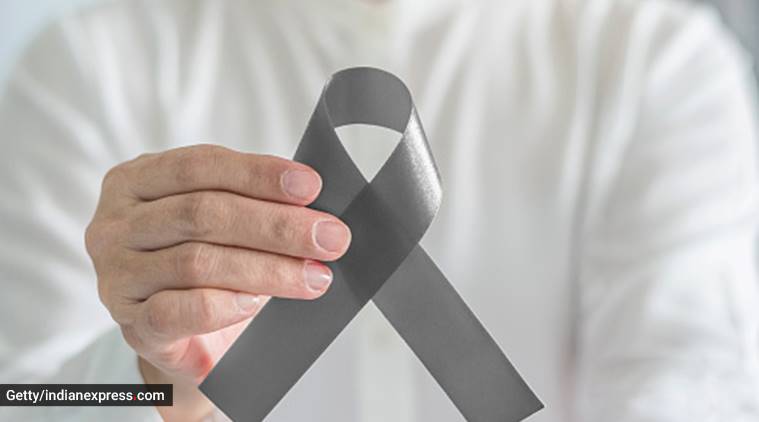
Published: July 11, 2020 12:05:51 pm

A CT scan or MRI scan of the brain are the tests of choice to diagnose brain tumours. (Source: getty images)
By Dr Anurag Gupta
Brain tumours account for approximately 35 per cent of all childhood cancers and are the most common cause of cancer deaths.
As children may not be able to communicate what ails them, it is often difficult to diagnose a problem. A child may show symptoms based on whether they are caused due to increased pressure inside the head or due to the location of the tumour.
Symptoms that arise due to raised pressure
Severe headaches associated with vomiting, especially early in the morning.
Blurring or dimming of vision.
Excessive sleepiness or, in extreme cases, loss of consciousness.
Loss of memory.
Read| Childhood cancer is not a death sentence: 10 myths busted
Symptoms due to location of tumour
Weakness of one side of the body or limb.
Visual loss causing worsening of academic performance.
Difficulty in walking or tilting of head to one side.
Seizures.
Double vision, difficulty in swallowing and talking.
Diagnosis
A CT scan or MRI scan of the brain are the tests of choice to diagnose brain tumours. In certain cases, the patient may be further investigated with a whole body PET CT scan or angiography.
The three most common childhood brain tumours are:
Gliomas
These are the most common childhood brain tumours and can range from curable pilocytic astrocytoma to highly malignant glioblastomas. They can affect any part of the brain. Surgery is the mainstay of treatment and may be curative in the case of pilocytic astrocytomas. Other gliomas may need further radiation or chemotherapy.
Medulloblastoma
These are the most common causes of malignant brain tumour in children. They arise in the back part of the head and can present with either pressure symptoms or gait/balance disturbances. They are highly malignant with a tendency to spread along the spine. They need surgery followed by radiation and chemotherapy. In early cases up to 80 percent survival can be achieved.
Read| How cancer patients can preserve fertility
Craniopharyngioma
These are benign tumours with a tendency to recur. They arise from the area of the pituitary gland and present as visual or hormonal disturbances. They require surgery for removal and may need further radiation in certain cases. These tumours can leave the child with devastating long-term hormonal deficits such as disturbance in growth, excessive urine production.
How can you help your child cope?
The diagnosis of a brain tumour can have a devastating effect on the family and the child. The family must be prepared to not only cope with immediate effects of treatment, but long-term hearing and vision loss, seizures, learning disabilities, and more that the child may face, which may require long-term care and rehabilitation.
To help your child, it is very important that the parent and caregiver get the facts right. Just relying on random internet searches may give you wrong or even dangerous information. Use your doctor to guide you to the right information and resources. It is best to be honest with your child, but you need to break down the facts in simple age-appropriate terms. Give as much information as your child needs, but not more. While explaining treatment, try to break it down into simple steps.
It is crucial to reassure the child that the brain tumour is not the result of anything they did, and that it is perfectly alright to be angry or sad about it. It is common for siblings of the affected child to feel neglected, jealous, and angry when the attention is showered on the seriously ill child. Explain as much as they can understand, enlist family members and friends to help keep some sense of normalcy for them.
And finally, as hard as it may be, take care of yourself. Parents who get the support they need are better able to support their child.
(The writer is Senior Consultant, Neurosurgery at Fortis Hospital Vasant Kunj.)
? The Indian Express is now on Telegram. Click here to join our channel (@indianexpress) and stay updated with the latest headlines
For all the latest Parenting News, download Indian Express App.
© IE Online Media Services Pvt Ltd